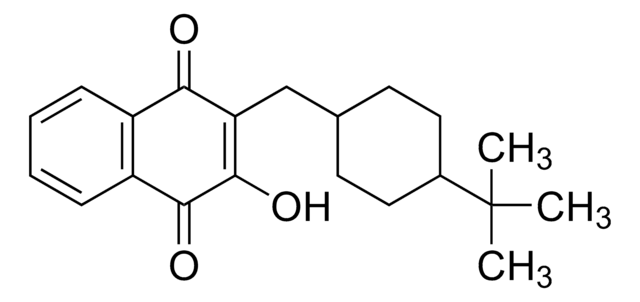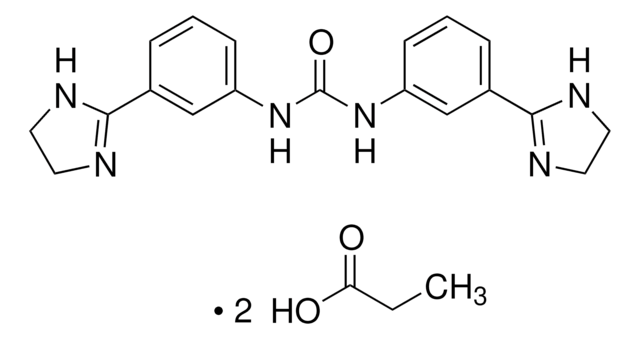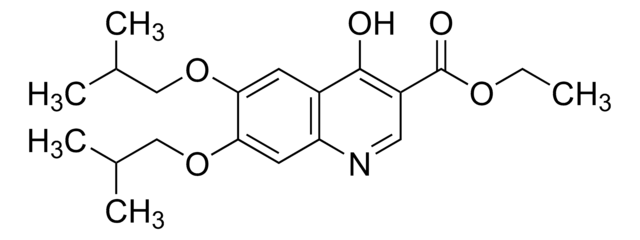32154
Buparvaquone
VETRANAL®, analytical standard
Synonym(s):
2-[(4-tert-Butylcyclohexyl)methyl]-3-hydroxy-1,4-naphthoquinone, 2-[[4-(1,1-Dimethylethyl)cyclohexyl]methyl]-3-hydroxy-1,4-naphthalenedione
About This Item
Recommended Products
grade
analytical standard
Quality Level
product line
VETRANAL®
technique(s)
HPLC: suitable
gas chromatography (GC): suitable
application(s)
forensics and toxicology
veterinary
format
neat
storage temp.
2-8°C
SMILES string
CC(C)(C)C1CCC(CC1)CC2=C(O)C(=O)c3ccccc3C2=O
InChI
1S/C21H26O3/c1-21(2,3)14-10-8-13(9-11-14)12-17-18(22)15-6-4-5-7-16(15)19(23)20(17)24/h4-7,13-14,24H,8-12H2,1-3H3
InChI key
KLLIVCPQDTYMLC-UHFFFAOYSA-N
Looking for similar products? Visit Product Comparison Guide
Application
Legal Information
Storage Class Code
11 - Combustible Solids
WGK
WGK 3
Flash Point(F)
Not applicable
Flash Point(C)
Not applicable
Choose from one of the most recent versions:
Already Own This Product?
Find documentation for the products that you have recently purchased in the Document Library.
Our team of scientists has experience in all areas of research including Life Science, Material Science, Chemical Synthesis, Chromatography, Analytical and many others.
Contact Technical Service







